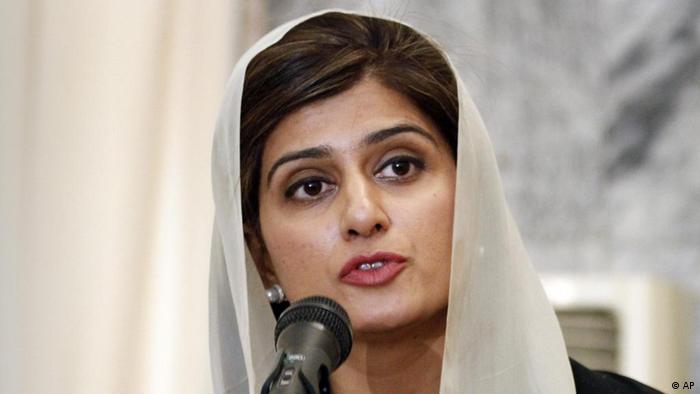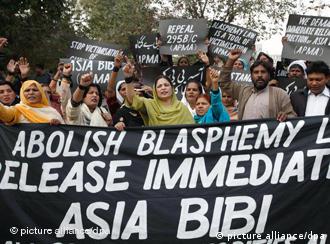M WAQAR..... "A man's ethical behavior should be based effectually on sympathy, education, and social ties; no religious basis is necessary.Man would indeed be in a poor way if he had to be restrained by fear of punishment and hope of reward after death." --Albert Einstein !!! NEWS,ARTICLES,EDITORIALS,MUSIC... Ze chi pe mayeen yum da agha pukhtunistan de.....(Liberal,Progressive,Secular World.)''Secularism is not against religion; it is the message of humanity.'' تل ده وی پثتونستآن
Thursday, November 1, 2012
Pakistan's rights record slammed by UN
As Pakistan seeks to become a member of the United Nations' Human Rights Council, the West has once again expressed 'serious concern' over human rights violations in the Islamic country.
Pakistan's bid to become a member of United Nations' Human Rights Council (HRC) suffered a setback on Tuesday when the HRC members slammed the human rights situation in Pakistan at the council's Universal Periodic Review meeting in Geneva.
New HRC members will be elected on November 12 and Pakistan hopes it will get a seat at the council. Pakistan's Foreign Minister Hina Rabbani Khar
led the delegation to Geneva to defend Islamabad's human rights record and convince the member states to vote for her country.
"Today Pakistan is a functional democracy with an elected and sovereign parliament, an independent judiciary, a free media and a vibrant and robust civil society," Khar told the HRC.
She said that her government was working hard to improve human rights in Pakistan and defeat extremism.
Sharp criticism
Most HRC member countries, however, seemed unimpressed by Khar's defense.We have
serious concerns about the human rights situation in Pakistan," US ambassador to the HRC, Eileen Donahoe, told the council. She, in particular, mentioned the army operations "aimed at silencing dissent" in the Pakistani province of Baluchistan, which is facing a protracted separatist movement.
Donahoe said that Pakistan should "ensure that those guilty of torture, enforced disappearances and extrajudicial killings must be prosecuted" and that laws discriminating against religious minorities should be reformed.
Pakistan's controversial blasphemy laws also came under criticism. The British delegate condemned the recent case of a young Christian girl, who had been accused by an Islamic cleric of burning pages of the Koran. The girl - who was released by a Pakistani court on bail - had spent several weeks in jail on blasphemy charges.
The US and British condemnation was echoed by Sweden, Switzerland and some other European countries, including Belarus. The Belarus delegate urged Islamabad to fight the trafficking of women and children, stop sexual exploitation and the cruel treatment of children.
'A weak defense'
Pakistani human rights activist Saleha Athar told DW that it was not easy to defend the dismal human rights situation in Pakistan. She said that Khar's defense of Pakistan's human rights situation was "weak."
"The human rights situation in Pakistan is very bad," Athar said. "Khar was trying to defend her government and not the human rights situation in Pakistan."Athar appreciated the fact that Pakistan had a democratic government but said that democracy was still controlled by the Pakistani army.
"True democracy guarantees better human rights but unfortunately, Pakistan is far away from it," Athar commented, adding that in recent years, the Pakistani parliament had passed a number of bills and laws to empower women and minorities but that they would remain meaningless until the government made sure they were properly implemented.
She said that the issue of "forced disappearances, extremism, and religious rights of minorities" needed government's immediate attention.
Karachi-based rights campaigner Zahid Farooq told DW that one should not expect human rights to improve in a country whose legislations were based on religion.
"Religious minorities are being targeted in Pakistan. The blasphemy laws are used to grab their lands, to steal their wealth and to kidnap their women," said Farooq, adding that Pakistan's founder Muhammad Ali Jinnah had a liberal vision for Pakistan but that the successive regimes turned the country into a theocratic state.
International obligations
Both Athar and Farooq, however, believed that Pakistan should be given the HRC membership.
"Pakistan's human rights record is not good but we hope that the HRC membership will make things better," Farooq said. The international obligations would obligate Islamabad to do more work to improve the rights situation, he added.
Athar was of the opinion that the HRC membership would allow the international community to monitor the human rights situation in Pakistan in a better way.


No comments:
Post a Comment